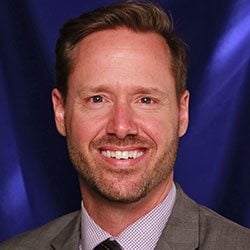
Coaching. Once a term used to describe skill-based mentorship in the sports arena, it has now altered the landscape of professional work environments across industries throughout the world, including education. We hear and read about coaching and the influence it has on organizational outcomes, but what is it exactly? Why does it now play such a prominent and potentially impactful role in employee development? Why has traditional supervision taken a backseat to a more shared and progressive growth model? It really comes down to the science of learning and human nature.
Growing up, we experienced learning in a variety of ways. All of us have drudged through courses where we spent most of our time trying to keep up with what the teacher or professor was saying all the while wondering when (if ever) we would use the knowledge we were so desperately trying to acquire. Day after day we would go to class, counting the minutes for it to end from the very second we walked through the door. Hopefully those experiences were the exception. On the flip side, we also can remember the classes we LOVED. When you consider these two contrasting experiences, what did you enjoy so much about the course you loved? How did the teacher or professor captivate your attention and make you want to persist even when the concepts and work were difficult?
When I think about that course for me, so much comes to mind. First, it was clear the teacher was deeply passionate about the content and intentionally designed learning in a way that was connected to my life. I didn’t spend time wondering about when I would use the information because the lessons were designed in a way that I was already applying the learning in my life’s context as part of the learning process. The work was meaningful but challenging. Yes, there were times when I got stuck and needed assistance, but I persisted because I was so captivated by the experience. It was interesting and fun! Lastly, my teacher provided me with so much choice. There were many ways I could go about learning the content or demonstrating my mastery. I was allowed to lean into my interests and natural strengths, and they were encouraged and celebrated. The students in the class didn’t all have to produce the same product. We were given a certain level of autonomy and that autonomy allowed us to thrive.
Now you may be asking yourself, what does this have to do with coaching? Well, simply put, everything! Coaching is nothing more than a model for learning. The reason coaching improves practice above all other forms of professional learning and supervision is because these same learning elements that you noticed in the courses you loved also exist as part of the coaching process. Effective coaching is strength-based, founded on strong competencies, and provides in learning opportunities grounded choice and autonomy.
Jim Knight (2023), author for ASCD, shared research conducted by Edward Deci and Richard Ryan. They found that “people have three innate human needs—competence, autonomy, and relatedness—[needs] that will increase motivation when met and decrease motivation when not met. That is, people will feel motivated when they (a) are competent at what they do, (b) have a large measure of control over their lives, and (c) are engaged in positive relationships.” The opposite is also true. When there is a lack of these qualities within our professional environments, negative consequences abound. Knight indicates that “when professionals are told what to do and given no choice, the best possible outcome is likely compliance—and compliance is not enough to do the complex work needed in our schools.” Because we work to cultivate a culture of coaching to grow and develop our practices to meet the complex challenges we face each day in service of kids.
Effective coaching leans into choice and invites us as professionals to not only build positive relationships with others, but to also assert some level of control over how we personally develop. We get to choose our goals and through the powerful questions of a skilled coach, identify what competencies we want to practice in pursuit of future professional mastery. Coaching expects us to show up as an equal partner in the learning process. It is active in nature and requires high levels of metacognition. There is a reason the top athletes, CEO’s, educators and musicians routinely engage in the coaching process. It’s because the best of the best own their learning and this ownership drives improvement.
As you reflect, how can you take full advantage of the coaching opportunity available to you? Here are a couple of ideas to consider:
- EMBRACE YOUR ROLE. As the coachee, YOU lead the process, not the other way around. Spend some time in advance considering what you want to work on. What makes you believe this is an area for growth? What steps can you take to improve and what evidence will you use to demonstrate to yourself that you achieved your intended outcome?
- BE VULNERABLE. Coaching encourages us to share and sometimes talk about areas of our professional development that we may feel apprehensive acknowledging. It’s ok and typical to feel that way! We all do. If you want to maximize your coaching relationship to improve, trust and know that your coach has your best interest front and center and that your success is their success. Challenge yourself to be open. The very best coaching experiences start with transparency.
- PAT YOURSELF ON THE BACK. Yes, celebrate yourself! Change is hard work and growth is change. Get excited about your small wins and don’t be afraid to feel the joy that comes from reaching your goals and slowly improving. Learning is what gives life zest. The more you can honor your work and affirm yourself in your efforts, the more you will cultivate your internal motivation to continue.
Growth takes time and comes through consistent effort. You don’t become a master pianist practicing one time. It comes from hours and hours of personal effort and diligence. Learning to be a powerful teacher and leader is no different. The more we reflect on our practices and hone our skills, the more we can connect with our students and ensure they grow under our guidance.
Thank you for showing up and bringing your strengths to the coaching process! You got this!

